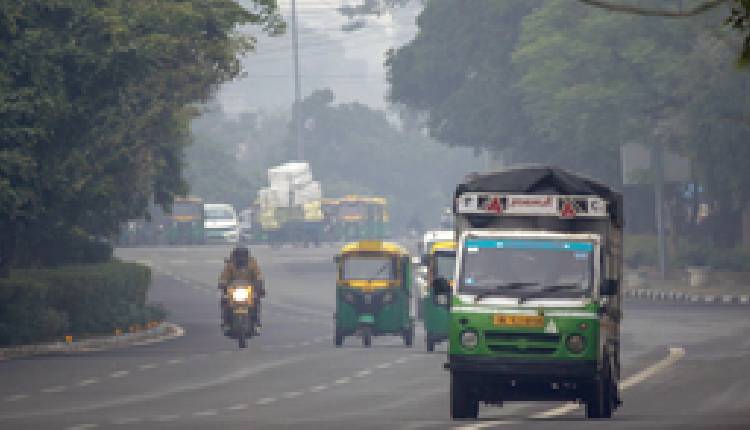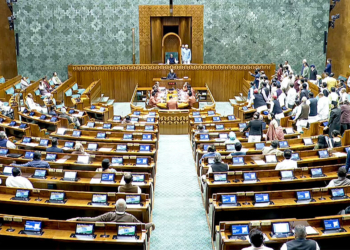New Delhi: The air quality in Delhi has significantly deteriorated, as the city’s Air Quality Index (AQI) surged to 341 on Sunday at 6 am, according to the Central Pollution Control Board (CPCB), falling into the ‘very poor’ category.
Air quality across Delhi remains concerning as several areas reporting high AQI levels with Anand Vihar reaching an alarming 418, Vivek Vihar at 407, and Wazirpur at 401, Ashok Vihar stands at 384, Jahangirpuri at 372, and Punjabi Bagh at 375, all in the ‘very poor’ category. Patparganj records 367, while Bawana and Rohini are at 338 and 367, respectively. R K Puram has an AQI of 358, and Najafgarh, though lower, still has a ‘poor’ AQI of 282.
The increase in AQI levels has been attributed to a combination of unfavourable meteorological conditions. The calm winds, low ventilation coefficients, and smoggy conditions are contributing to the slow dispersion of pollutants, trapping them over the city.
Meanwhile, the weather in Delhi has been undergoing a shift, with the Indian Meteorological Department (IMD) issuing a yellow alert for moderate to dense fog on Sunday. Despite the fog, temperatures are expected to remain relatively mild, with a maximum of 24 degrees Celcius and a minimum of 9 degrees Celcius.
The IMD has observed that the city’s temperatures are transitioning from the cold winter range of 22-26 degrees Celcius for maximum and 10-12 degrees Celcius for minimum, indicating the onset of milder weather.
While mornings and nights are still chilly, the daytimes are showing warmer trends, with temperatures reaching up to 25 degrees Celcius.
In response to the rising pollution levels, the Commission for Air Quality Management (CAQM) activated Stage III restrictions under the Graded Response Action Plan (GRAP) earlier on January 29. These measures are aimed at curbing air pollution by imposing stricter controls on construction activities, vehicular emissions, and other pollution sources.
As Delhi continues to battle the dual challenge of poor air quality and fluctuating weather, residents are urged to take necessary precautions, such as limiting outdoor activities, wearing masks, and using air purifiers to mitigate the health risks associated with the deteriorating air quality.
(IANS)
















